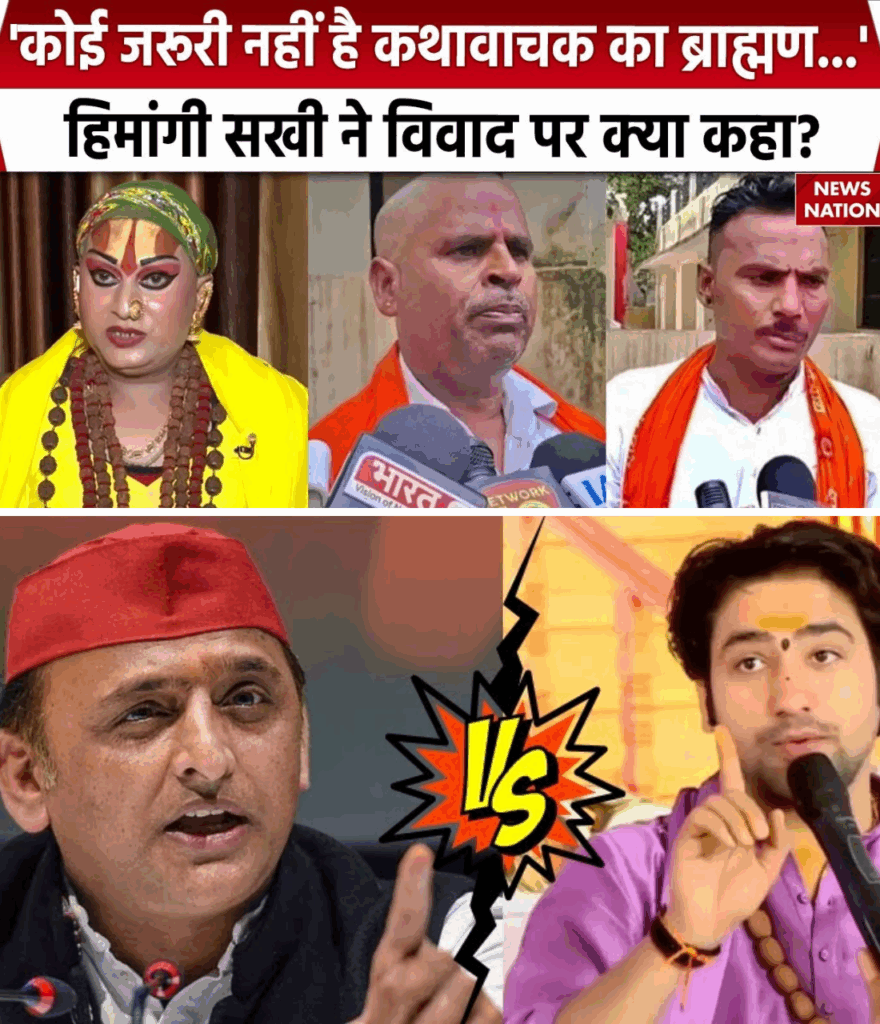Caste Controversy Erupts Over Religious Storytellers in Uttar Pradesh’s Etawah
A recent incident in Etawah, Uttar Pradesh, has sparked a heated debate over caste and religious authority, raising questions about who is entitled to narrate sacred Hindu stories. The controversy began when local villagers assaulted two religious storytellers, Mukut Mani and his associate Sant Singh, accusing them of hiding their caste identity.
Caste Tensions Take Center Stage
The altercation took place in Dadarpur village, where the storytellers were allegedly attacked after villagers claimed they had misrepresented themselves as Brahmins while actually belonging to the Yadav community. The dispute quickly escalated, gaining political traction and stirring up deep-seated caste tensions.

Following the incident, a case was filed against Renu Tiwari, a local woman, for allegedly making derogatory comments about a specific caste and disturbing communal harmony. Tiwari had accused Mukut Mani and his associates of fraudulently presenting themselves as Brahmins and showing fake identity cards. She also alleged inappropriate behavior by the storytellers during a meal at her home.
Both Sides Present Their Case
Mukut Mani and his supporters denied the allegations, claiming that the attack was motivated solely by their Yadav identity. They asserted that their identity cards accidentally fell out during the commotion and that they were unfairly targeted and humiliated.
The incident, which occurred on June 21, was captured on video and quickly went viral, further fueling the controversy. In response, several Yadav organizations called for action against the villagers, leading to further unrest. Members of the Ahir Regiment and Gagan Yadav’s group reportedly entered the village, resulting in clashes with police and stone-pelting incidents.
Police Response and Ongoing Investigation
Police responded by arresting four individuals based on the storytellers’ complaint and filing cases against both sides. Nineteen people involved in the unrest were also detained. Authorities have vowed strict action against anyone attempting to disturb the peace and continue to monitor the situation closely.
Debate Over Caste and Religious Authority
The controversy has sparked a broader discussion on whether only Brahmins are entitled to narrate sacred stories and perform religious rituals. During a televised debate, prominent religious leaders expressed differing views. Some argued that anyone who has received proper spiritual training and initiation from a guru should be allowed to conduct religious storytelling, regardless of caste. Others maintained that only Brahmins, who have traditionally been custodians of religious knowledge, should occupy such roles, citing ancient scriptures and traditions.
One panelist highlighted the example of Sant Ravidas, who, despite not being a Brahmin, became a revered spiritual figure and spread the teachings of God. Another countered by referencing texts that accord a higher status to those who perform noble deeds, irrespective of their caste.
A Divided Community
The incident has exposed deep divisions within the community and raised important questions: Should devotion and religious storytelling be restricted by caste? Is it necessary to be born a Brahmin to narrate the stories of God? Or should anyone with the right knowledge and intention be allowed to do so?
As the debate continues, authorities urge calm and call for a focus on unity rather than division. The case remains under investigation, with both sides awaiting further developments.
News
बस अड्डे का वह बच्चा — शहीद के बेटे की कहानी
बस अड्डे का वह बच्चा — शहीद के बेटे की कहानी बस अड्डा सुबह से ही शोरगुल से भरा था।…
गर्मियों की सुबह थी, करीब 9 बजे। आईपीएस साक्षी राजपूत अपने कार से एक गुप्त मिशन के लिए जा रही थीं।
आईपीएस साक्षी राजपूत की कहानी – वर्दी की असली ताकत गर्मियों की सुबह थी, करीब 9 बजे। आईपीएस साक्षी राजपूत…
Kajal Aggarwal’s recent accident has shaken her entire family to the core. The actress is currently unconscious and admitted to the ICU
Kajal Aggarwal’s Accident Leaves Family Devastated: Mother Breaks Down in ICU Kajal Aggarwal’s recent accident has shaken her entire family…
चौराहे पर सुनील और समोसे का ठेला – एक इंसानियत भरी कहानी (हिंदी में)
चौराहे पर सुनील और समोसे का ठेला – एक इंसानियत भरी कहानी (हिंदी में) मुंबई के एक व्यस्त चौराहे पर…
फिर वे अपना एटीएम कार्ड निकालकर राधा के हाथ में रखते हैं, “बैंक जाओ, इससे 500 रुपये निकालना। अंश के लिए दूध और घर के लिए थोड़ा राशन ले आना।”
राधा और बैंक – इज्जत का असली मतलब (हिंदी कहानी) एक दुबली-पतली दस साल की लड़की, राधा, अपने पाँच महीने…
कहानी: इज्जत, इंसानियत और किस्मत की सच्ची जीत
कहानी: इज्जत, इंसानियत और किस्मत की सच्ची जीत दिल्ली के एक पौश इलाके में राजीव मल्होत्रा का आलीशान बंगला था।…
End of content
No more pages to load



